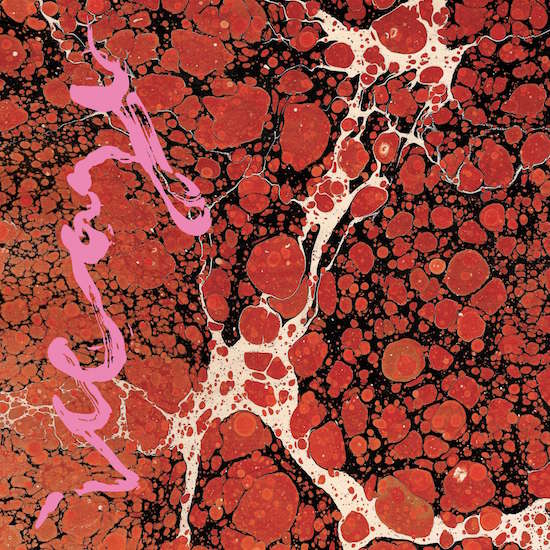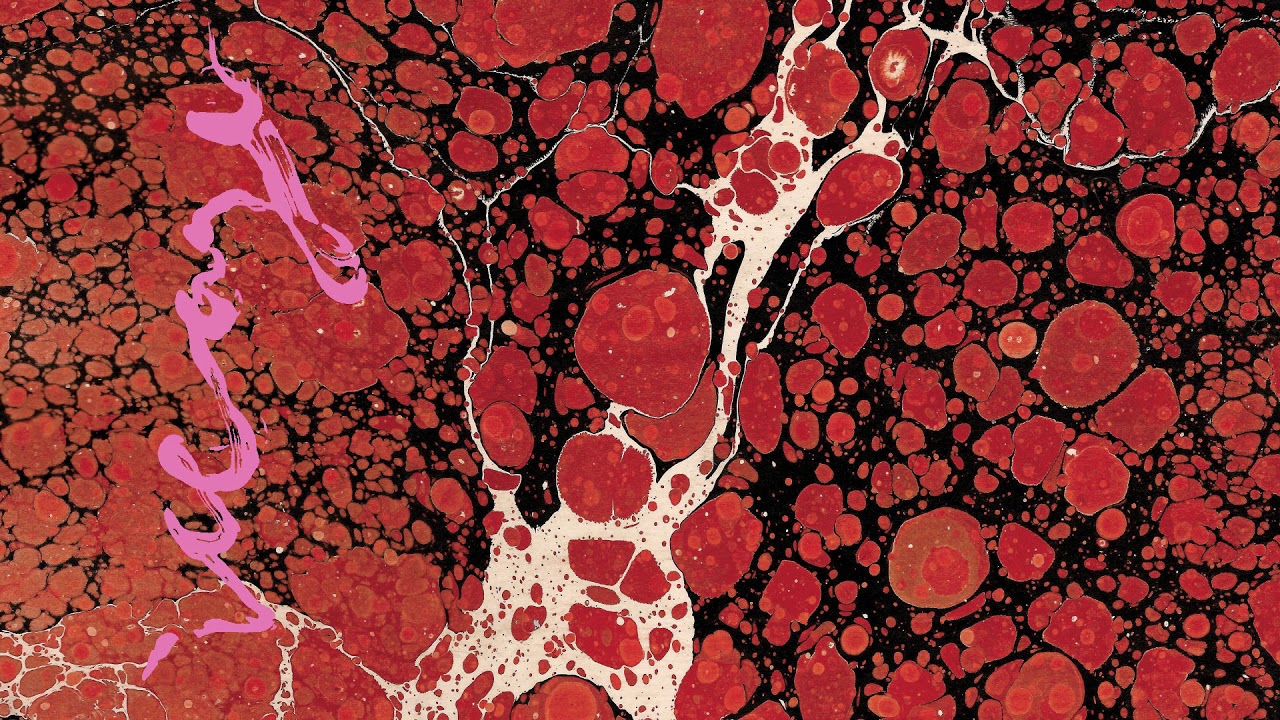Iceage have always been a prospect most enigmatic; they rarely give interviews, they release albums with esoteric cover art, and they communicate with their fans solely through music. The band are childhood friends, and to outsiders they can seem like an impenetrable gang, lurking in the shadows of all that is good and true. There’s much variety between the riotous (and often half-baked) malignance of their first two albums, The New Brigade and You’re Nothing, and their more fully realised third album, 2014’s Plowing Into The Field Of Love, but their music always has recurring themes and remains hard to decipher.
The leader of this gang, and the key to their mystery, is Elias Bender Rønnenfelt. As Iceage rose to cult status, they were defined by this chiselled figure. His sharp teeth showing, his hair in his eyes, and his lyrics often unintelligible as they gushed out of his mouth in the black of night. But now, on Beyondless, it feels as though Rønnenfelt has shed this mystery; his role is to the listener, to add clarity and help understanding, where before he was the very thing muddying the water.
Beyondless arrives after a string of releases from Rønnenfelt’s tonally brighter side-project, Marching Church. While the album certainly covers pastures already trodden – scorn, turmoil, and heartbreak – it also seems to revel in allegory, explore the neutral territories of confusion, and ultimately act as a triumphant victory lap. At times they sound every bit as vicious as on their earlier, thrashier works, but throughout Beyondless you get the sense that they are genuinely enjoying themselves.
The opening duo of ‘Hurrah’ and ‘Pain Killer’ exemplify this best. A fiery cold-water-on-hot-oil Johnny Thunders guitar lick ushers in ‘Hurrah’, the album’s most cathartic song. Rønnenfelt rasps, croons and hollers a fervent antiwar sentiment with such passion that it sounds like the victory cry of someone who’s vanquished all the world’s ills through sheer force of will. He growls, “Cos we can’t stop killing, and we’ll never stop killing / And we shouldn’t stop killing, hurrah!” – and boy is it powerful.
‘Pain Killer’ is an enriched variation on this theme, with the help of a bombastic horn section and backing vocals from quirk-pop pariah Sky Ferreira. Atop the fanfare, Rønnenfelt and Ferreira’s husky harmonies transform a fairly sombre chorus into an anthem, making a celebration of life’s little victories in the face of great trepidation. The chorus goes: “You made me rue the day / You became my pain killer”. But it is belted out by both parties with such force that it radiates joy, not regret.
Elias Bender Rønnenfelt has always seemed to position himself as one of rock music’s ‘tortured poets’, but Beyondless goes some way to highlighting his prowess as a lyricist. The lyric sheets to Beyondless read like prose, but you don’t have to break out the reading glasses to decode his songs. Aided by crystal clear vocal production, Rønnenfelt’s lyrics are instantaneous and shape the record in his strange vision. Whether that’s atop the snotty post-punk of ‘Hurrah’, the tilted sea shanty of ‘Thieves Like Us’, or the pop noir of ‘Showtime’.
‘Showtime’ is a particular highlight, as the lyrics conjure an especially vivid picture. Much in the vein of Ian Curtis on Atrocity Exhibition – a sneer at the people who “pay to see his body twist” – Rønnenfelt details a fictional singer’s decline as he pushes the limits of how much one should suffer for their art. “In the roaring applause / a pistol he draws / And blows his brains all over the stage,” he sings. “Hence it’s showtime / Wretched pantomime”.
The song might be about pushing at artistic boundaries, but for Iceage it signifies the breach of a different kind of threshold. It is sultry and sordid, as the band’s trademark sounds yields to an overpowering saxophone. Dark and lusty, it’s Old Hollywood meets Cronenberg.
It is only on tunes like lead single ‘Catch It’ and slow burning Take It All – fairly stagnant, atmospheric post-punk numbers – that the band’s rejig of their sound misses the mark. The moments of righteousness, though, outnumber the misfires. Iceage’s efforts to expand their sound not only permeate this record, but make it their finest work to date. They have always been a more-than-capable band, but this album suggests they could one day be a great one.



